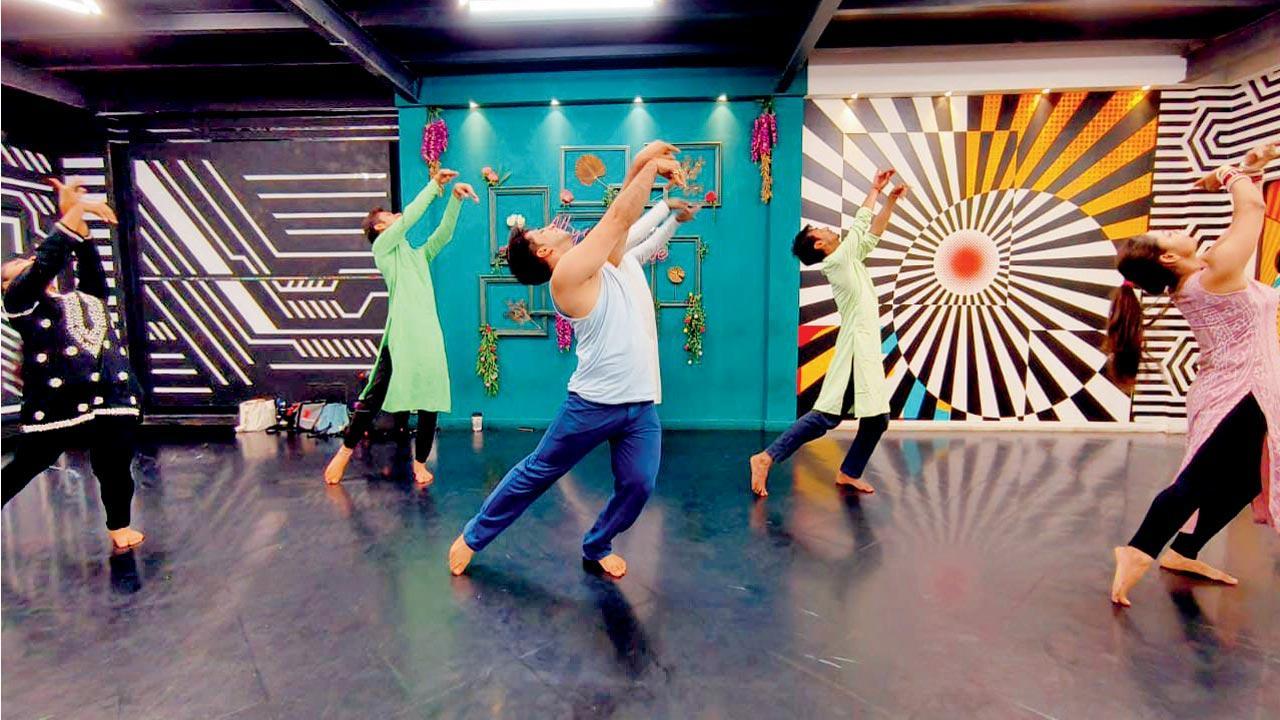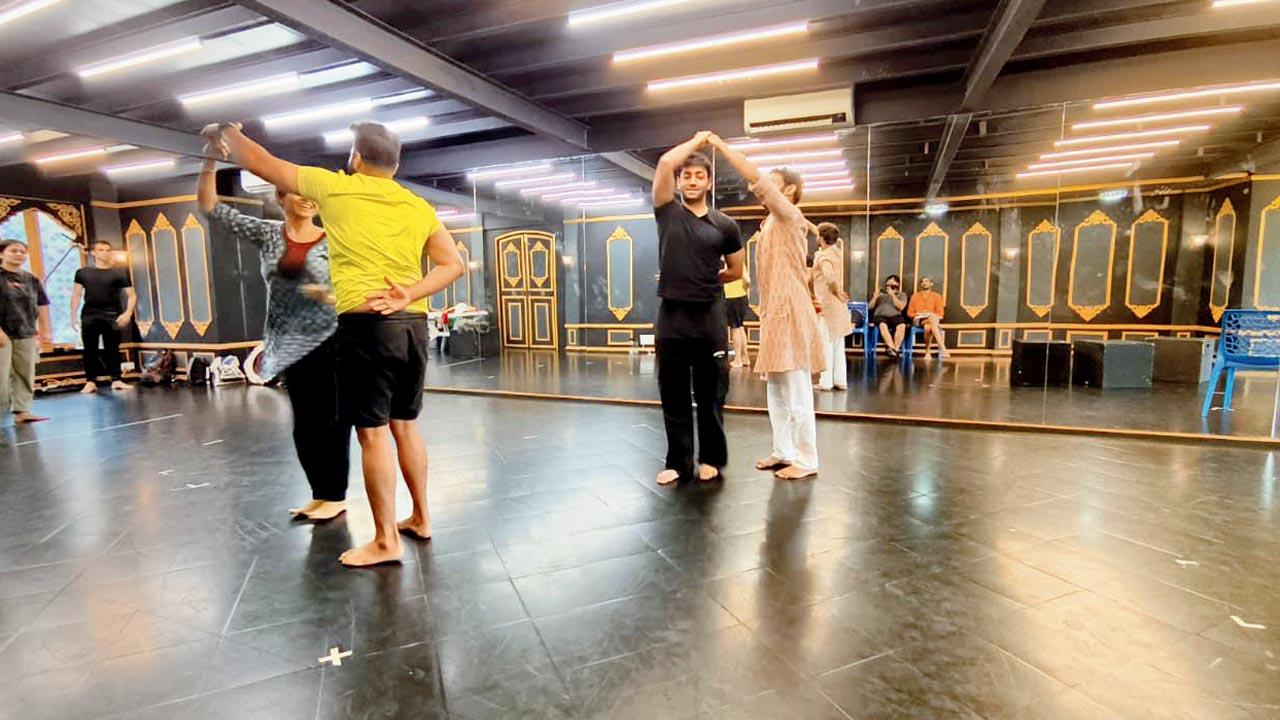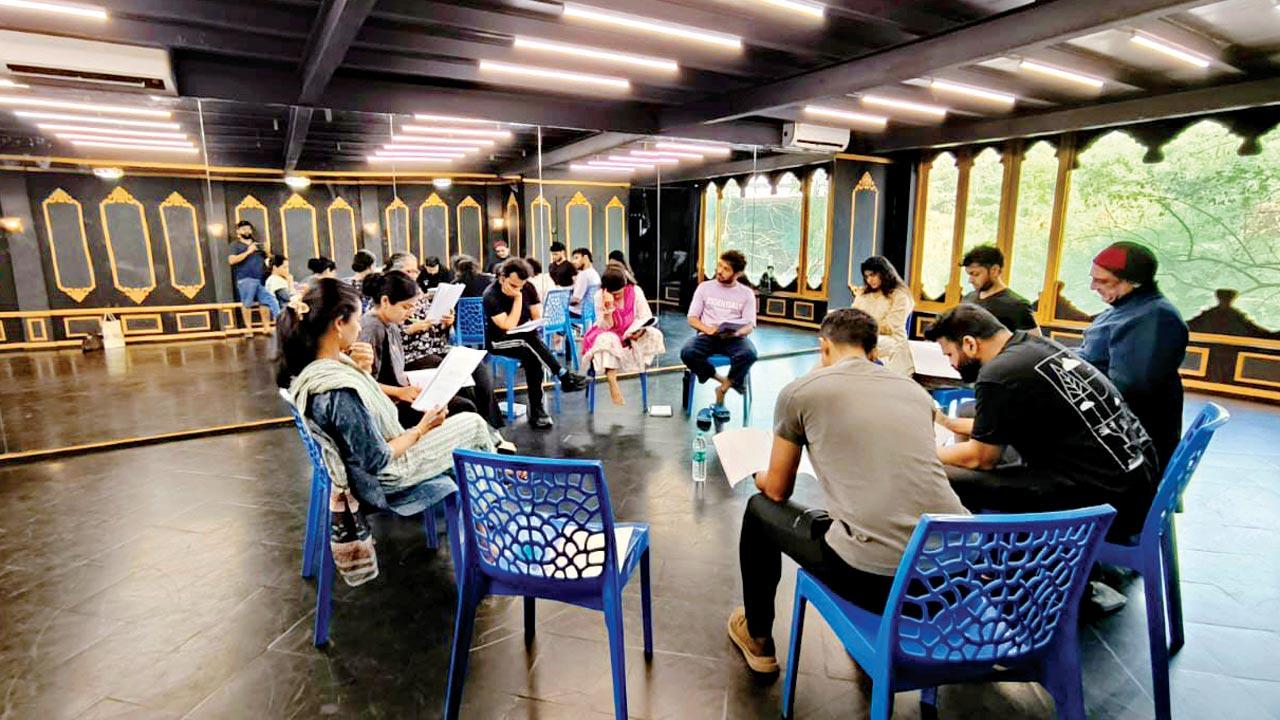On World Parkinson’s Day today, a performance brings to the Mumbai stage a personal story relayed through the fluidity of dance

Actors rehearse a sequence ahead of their performance in Mumbai
Every step you take is made possible and managed by a million neurons firing electrical impulses in the span of a split second. One break in the circuit can cause chaos. This is precisely the nature of Parkinson’s Disease. For Dr Vonita Singh, founder of Movement Mantra and producer of the play, Still Dancing, this learning came at a personal cost.
ADVERTISEMENT
Singh’s introduction to the chronic degenerative disorder was in 2010 when her father was diagnosed with Parkinson’s Disease. “As the condition progressed, it was traumatic and left us with a feeling of helplessness,” she admits. One of the lessons from the experience was that counterintuitive to common understanding, movement was key to rehabilitation for such patients.
 Vonita Singh and Sanjeev Dixit
Vonita Singh and Sanjeev Dixit
“Parkinson’s is actually called a movement disorder. Movement is prescribed by neurologists because the muscles get affected. As my father’s disease progressed, we babysat him. By doing so, we limited him further and made him more inflexible,” Singh shares. It led her to the concept of her venture, Movement Mantra, that seeks to help patients rehabilitate through the use of dance.
Director Sanjeev Dixit recalls working on the script over voice notes from Singh and her family. “As a writer, you become a bit of an anthropologist. On the one hand, you have the events that occurred. On the other hand, there is the effect it has on people around,” he says. The key, Dixit adds, was Singh herself. “It is her journey, and that of her family. Their lessons, experiences are the sum of the parts that make up this experience.” Singh adds, “We stayed true to the events. I was so convinced of the need to reach out and start a conversation that the concern about my image ceased to bother me.”
 Dance forms a key motif of the narrative about Parkinson’s Disease
Dance forms a key motif of the narrative about Parkinson’s Disease
Incidentally, the play was first staged in Dubai on April 11, 2019. “It is a journey of exactly five years to the date, and we are at our India premiere today,” Dixit points out. The India leg of the journey began in January with QTP India handling the line production on acts such as casting through open auditions, scheduling and stage production. Artistic director Quasar Thakore-Padamsee reveals, “The reason we got involved was the same — the incredible story. I didn’t even know that movement was such a crucial thing to Parkinson’s’ patients.”
The play includes the Indian dance form as a key element. Dixit says, “It was an organic choice. Vonita is a Kathak dancer herself, and I spent a decade working with a dance group in Dubai. It was important that this remains a theatrical piece.
 The team at a reading session in Mumbai
The team at a reading session in Mumbai
While we hope to spread awareness, we must also deliver something with artistic merit for the audience to be engaged.” The troupe will use dance in expressive, abstract forms as a mode to convey expressions of the characters in the play.
But the dance is more than just an aesthetic. Singh shares that dance is often an enjoyable way to help patients retrain the brain’s pathways. “For a long time, I thought movement was part of therapy. I now realise that movement is therapy,” she remarks. Having moved to Ahmedabad a couple of years ago, she hopes to change the perception of the disease across the country. The producer reveals, “There is a huge gap in awareness. We are socially and culturally stigmatised to the word ‘Parkinson’s’.”
She adds, “The plan is to go pan-India, with performances in multiple languages across India, if possible to smaller towns. The threat of Parkinson’s is growing, and India is at the heart of it. There is no better reason than this to take it on the road,” she notes.
ON Today and April 13; 7.30 pm
AT Experimental Theatre, NCPA, Nariman Point; Royal Opera House, Charni Road.
LOG ON TO in.bookmyshow.com
ENTRY Rs 350 onwards
 Subscribe today by clicking the link and stay updated with the latest news!" Click here!
Subscribe today by clicking the link and stay updated with the latest news!" Click here!







